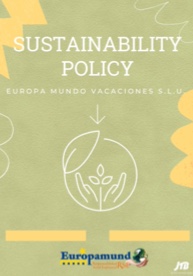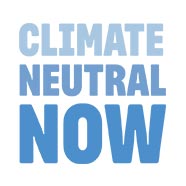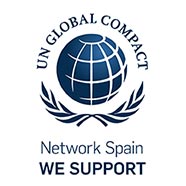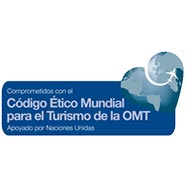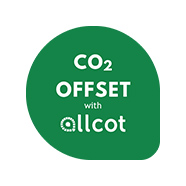Corporate Social Responsibility (CSR) is a way of managing for-profit and non-profit entities based on the management of the impacts that their activity generates on their stakeholders such as customers, suppliers, employees, shareholders, local communities, environment, and society in general under the prism of ethics and sustainability.
Europa Mundo Vacaciones (EMV), in its CSR policy, proposes to its customers and suppliers, and in general to all its stakeholders, to adhere to its Code of Ethics and Manual of Good Practices. EMV considers it a fundamental right to be able to demand its effective implementation and the monitoring of its compliance through a Committee created for its supervision. Any stakeholder may contact this Committee if they feel that any of EMV’s actions have violated or have not been in accordance with the Code of Ethics or EMV’s Good Practices Manual.
They can be sent to the general e-mail: m.buenaspracticas@europamundo.com or to any of the 9 people of the Committee.
Also as of June 2023, there is a whistleblowing channel in Spain that is regulated by Law 2/2023, of February 20, Regulating the Protection of Persons Reporting Regulatory Violations and the Fight against Corruption, which transposes Directive (EU) 2019/1937 (Whistleblowers Directive), approved in 2019 by the European Commission and the European Parliament.
Europamundo’s whistleblowing channel is the internal communication channel through which the company receives and manages reports made by the company’s own personnel, or by other persons linked to the company, on possible irregular or unlawful conduct that they may have witnessed or have knowledge of, and which are contrary to the company’s rules, both internal and external.
Corporate Social Responsibility and Sustainability
What does the CSR mean for Europa Mundo Vacaciones and the Europamundo Foundation?
What actions are carried out on CSR?
Europa Mundo Vacaciones implements its Corporate Social Responsibility Policy in accordance with the criteria of the GRI (Global Reporting Initiative) framework, the 10 principles of the Global Compact (The 10 Principles), the Code of Ethics of the World Tourism Organization (UNWTO Code of Ethics) and the International Code for the Protection of Tourists of the World Tourism Organization (International Code for Tourist Protection).
1.- Social dimension:
- Internal: Continuous training, flexible schedules, social benefits, emotional salary, integration activities for new employees, access to employment for people at risk of social exclusion, volunteering at the Europamundo Foundation and corporate volunteering.
- External: Customer service department, satisfaction survey filled in by our passengers, communication with our customers through our blog, Twitter, Facebook, online programs, relationship with NGOs through our Foundation.
2.- Environmental dimension:
Integral plan for selective waste collection, training on environmental issues, awareness of employees and management of Europa Mundo Vacaciones on environmental policies, reduction of CO2 emissions through the use of non-polluting alternative transportation, CO2e emissions report and offsetting, Zero CO2 – Neutral, Sustainable Management System, use of non-polluting alternative energies and adherence to the Sustainable Ocean Principles, Climate Ambition Accelerator, Global Tourism Plastics Initiative, Glasgow Declaration.
3.- Governance dimension of the organization:
- nternal: Europamundo Vacaciones (EMV) Code of Ethics (EUROPAMUNDO_ETHICAL_CODE), EMV Good Practice Manual (GOOD_PRACTICES_MANUAL), JTB Group Code of Conduct (CODE_OF_CONDUCT), UNWTO Internal Code of Conduct, adherence to the Global Compact, constant and intense relationship with stakeholders, interest groups such as customers and suppliers, and the creation of the Europamundo Foundation.
- External: Reputation and image of the company on the web, Facebook, Twitter, blog, Fitur and other international fairs, our catalogue, UNWTO partner (https://www.unwto.org/es), Pacto Mundial (https://www.pactomundial.org/), WTTC (https://wttc.org/) and ETOA (https://www.etoa.org/
Europamundo Vacaciones in general works in various fields in order to raise awareness so that our footprint is as small as possible in the destinations we visit and in any case that this footprint serves to promote coexistence and understanding between cultures, and to develop sustainable and responsible tourism.
In April 2011 we created the Europamundo Foundation, one of the 16 international partners of the World Tourism Organization in its ST-EP Programme for poverty alleviation through sustainable tourism. We have carried out 277 projects in 30 countries over the last 12 years reaching more than 260,000 direct beneficiaries and working with 60 NGO’s.
What are the benefits for the company of having a CSR programme?
We understand that companies are aware that they can contribute to sustainable development by producing a series of benefits in the medium and long term:
- Reinforcement of communication, credibility, reputation, and therefore brand loyalty.
- Increased employee motivation, commitment and loyalty, improving the working environment.
- It facilitates communication with stakeholders such as suppliers and customers.
- It positions and differentiates the product in relation to the competition. Generates an increase in brand value.
- A socially responsible company influences customer loyalty, renewing their commitment to the company.
- Improved image with shareholders and investors.
- Ease of access to sources of finance.
- It promotes a culture of social awareness.
When you are committed to social responsibility and ethics, you involve absolutely all of the company’s stakeholders and this has an excellent effect of uniting for the common good. Customers, suppliers, institutions, employees and all production areas of the company (operations, procurement, reservations, customer service, administration, transport, management, marketing and, of course, the foundation) are aware of the need to achieve this.
Does the customer value this type of action?
There are numerous factors driving this advance in corporate social responsibility through: the concerns and expectations of citizens and consumers, brought about by globalization and the social criteria that are having an increasing influence, the growing concern about the environmental deterioration caused by economic activity, and the transparency of business activities. All this means that the client, the civil society, has an important reference and trusts companies that follow the criteria of Social Responsibility and bring together social, environmental and economic aspects under the prism of ethics and sustainability.


